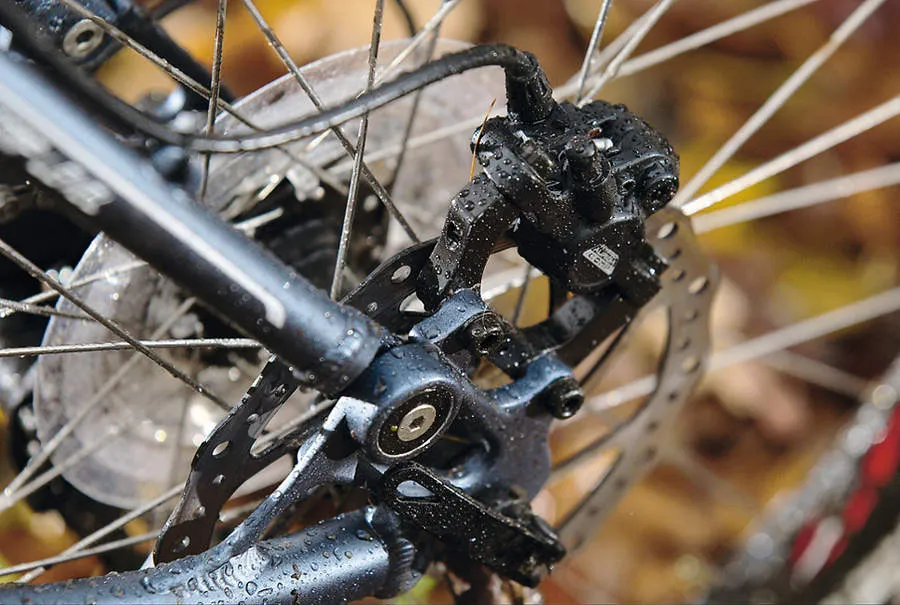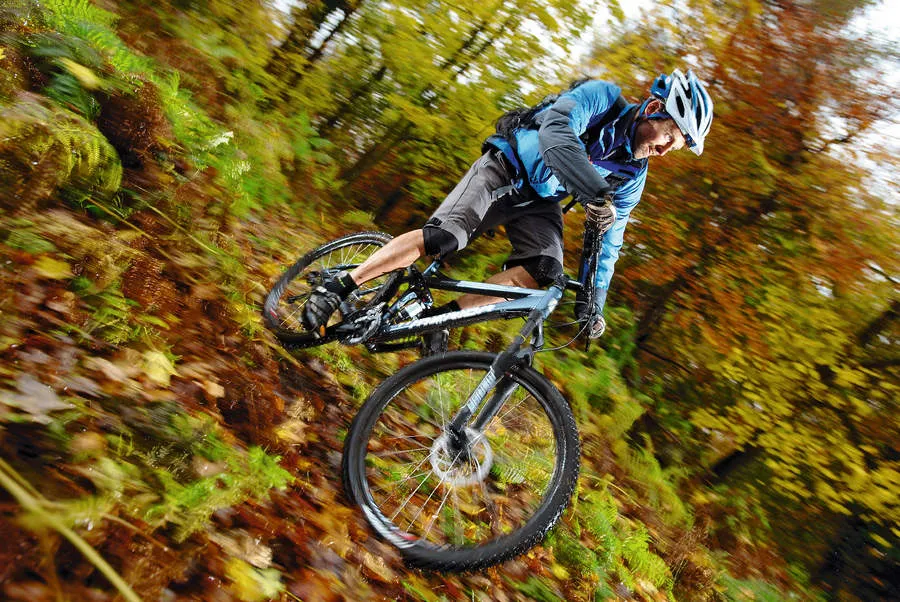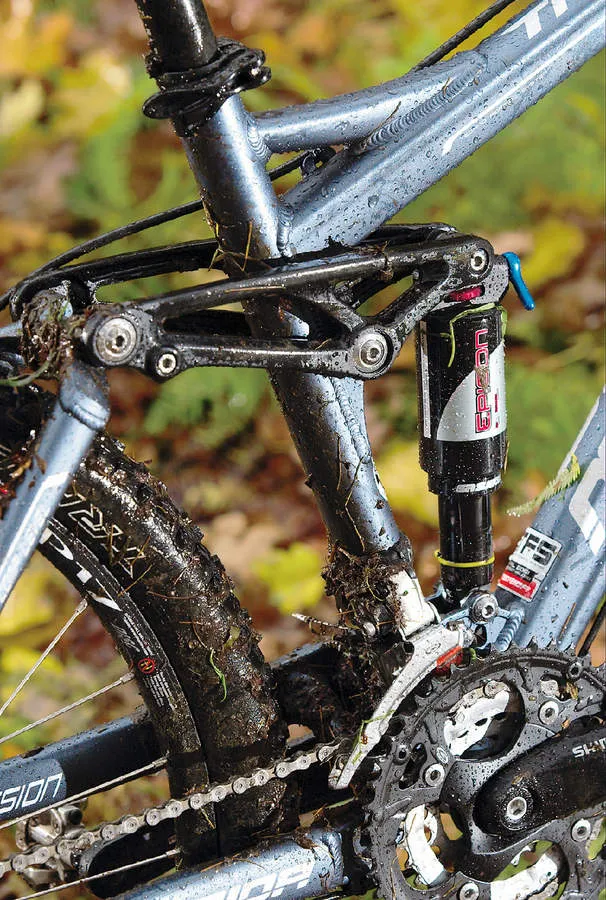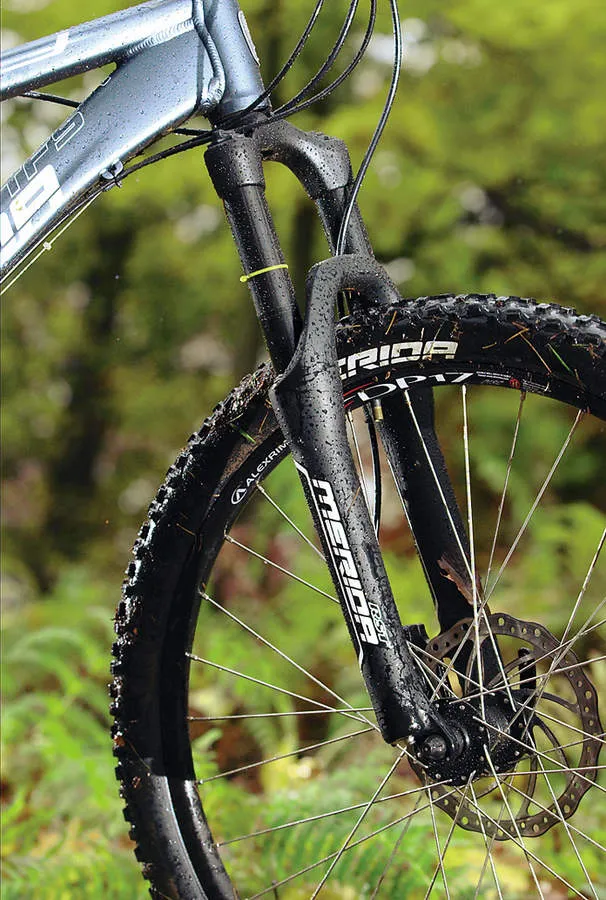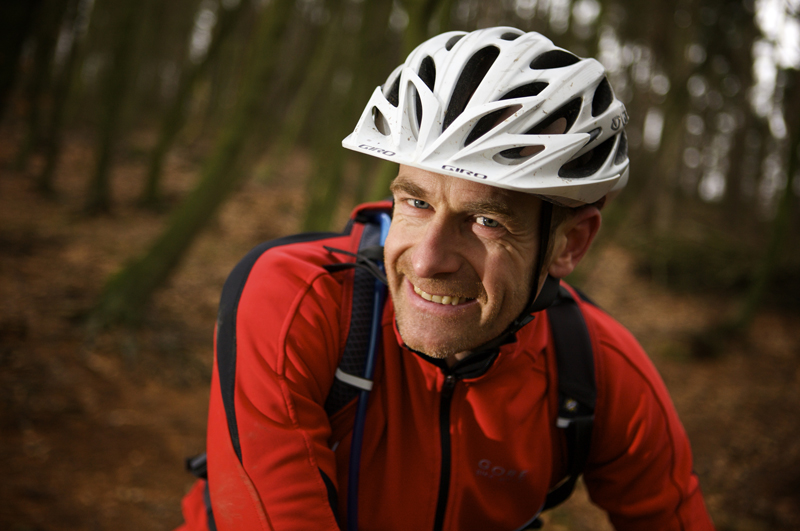Every year, Merida’s bikes improve and we’re not surprised their 2009 entry-level bike gets a really impressive frame, a decently controlled cockpit and some great value componentry. Unfortunately high overall weight and a shocking fork cripple the complete package.
The Merida is never going to be ‘day ride’ light, but it could be a capable bike for general riding and mucking about. There’s the potential for a respectable three-and-a-half stars overall score, but this depends on upgrading to a far better fork than the horribly cheap, uncontrolled item you get as standard.
Ride & handling: Shocking fork makes front end a horror show
The Trans-Mission 300-D's Merida-branded RST fork is so shocking that it completely undermines the excellent frame. It is undamped, so the coil springs are free to cannon back to a tooth- and wrist-jarring metal-on-metal top-out after every bump or step-down.
Single roots, rocks and small launches off drops are bad enough but the beating you get riding down steps or long, fast, rubbling descents is bewildering. The feeble brace means wander and twang when you try to steer hard, adding to the destruction of any meaningful feedback and making the front end a horror show. Relatively steep frame angles push more body weight than usual over the front end too, which doesn’t help on descents or under braking.
In case it was a one-off problem we contacted Merida UK, who replied: “We have looked into the fork issue with the Trans-Mission 300-D and the fork should have pre-load adjust and coil/MCU internals which should allow for a certain amount of adjustability. However, at this price point and with a focus on the quality of the frame and the general spec package, certain compromises have to be made and in this case it is the fork. Going by your experience it lets the bike down, but it is probably the item most riders can either upgrade from an existing fork or once they have outgrown the ‘out of the box’ bike as a rider.”
The good news – or real shame, depending on how you look at it – is that the rest of the bike rides okay. The rear suspension clunks a bit over flat-faced rocks and squats slightly under power, but otherwise the Epicon shock smoothes most things out okay. There’s a lockout lever if the slight pedalling bounce annoys you on the road, too.
The frame is reasonably tight and resists bullying from cambers and random rocks well. Handling is okay too, with decent mid-width bar, mid-length stem leverage for extra control. It still feels nervy on occasion, but long chainstays calm it down at speed.
Unfortunately overall agility, pace and climbing ability are all weighed down by the surprisingly hefty overall mass of the Merida – our 17in model weighed 32.24lb without pedals.
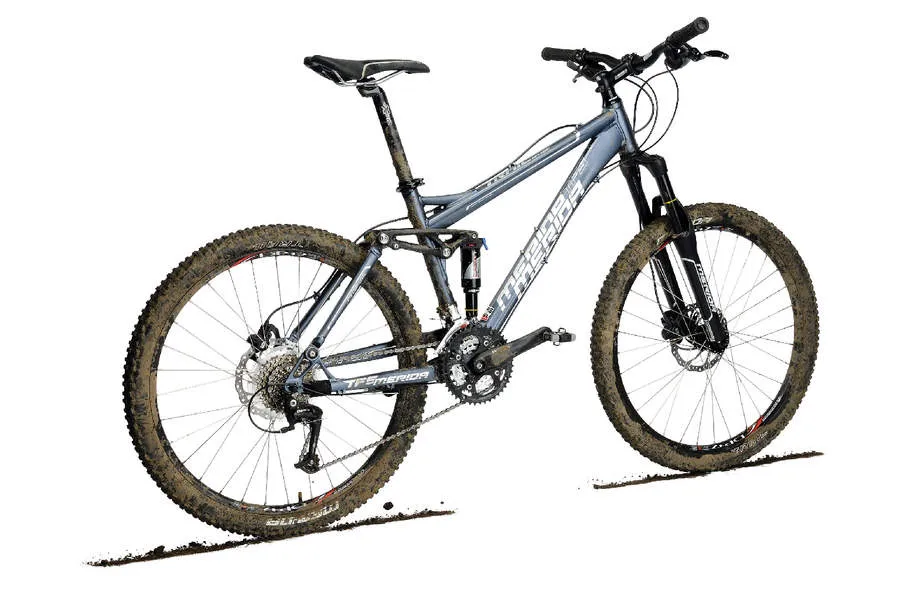
Frame: Chassis wouldn't be out of place on a bike at twice the price
As one of the world’s largest bike builders, Merida is at the forefront of materials and manufacturing development. Even this £800 full-susser beneits by inheriting the impressively worked frameset of last year’s AM series.
That means a centre-bulged and end-reinforced headtube, tapering trapezoidal-section top tube, curved seat tube brace pipe, double barrel ‘shotgun’ down tube, skeletal dropouts and machined linkage plates that bikes twice the price might envy.
It’s practical as well as pretty too. The long linkages drive the long-stroke air shock at an undemanding leverage, and you get sealed cartridge bearings all round. The complete outer cable routing keeps the muck out (watch the upturned front mech cable-end though) and there’s loads of mud room even with chunky tyres fitted.
The seat clamp is a neat open-lugged, slot-sealing machined piece that wouldn’t look out of place on a custom bike. Despite the low standover height there’s even room for a 500ml water bottle in the conventional downtube position.
Equipment: Good value Shimano Deore and Tektro hydraulic discs
Apart from the fork there’s nothing obviously overweight in the spec that would solve the weight issues with an instant upgrade. In fact it’s good for the money, especially the Shimano Deore transmission and the powerful, predictable Tektro Auriga Comp brakes.
The fat Merida Trail tyres add float and impact protection without sapping speed, although the plastic-like compound does no favours for grip over wet roots and rocks. Apart from the slightly unnatural bar shape, most of the Merida finishing kit is fine, but the stick-on grips soon came adrift in the wet.
